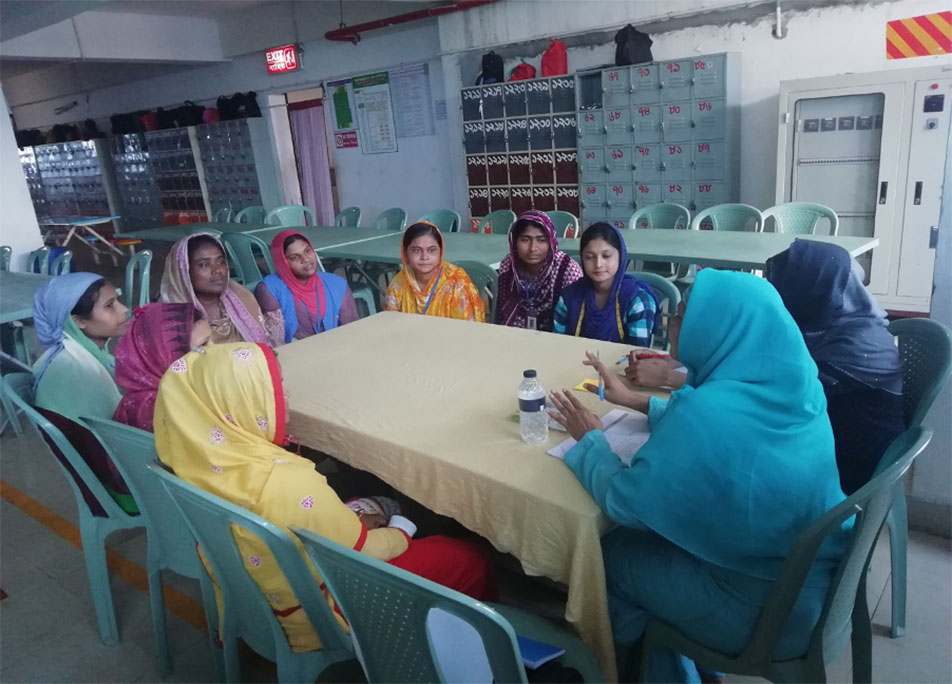

UNICEF Bangladesh has been working the Ready-Made Garment (RMG) sector since 2015 to understand how the sector’s operations and surrounding environments directly and indirectly impact children’s lives (read more here). The BB4C Programme was piloted in 2016 by UNICEF with the support of BGMEA and the Ministry of Labour and Employment and implemented by The Centre, with the aim of helping Bangladeshi factories in the footwear and garment sector understand their impacts on children and take actions to strengthen family-friendly business practices. Between 2017 and 2020, UNICEF and The Centre established partnerships with 30 factories who underwent vigorous child rights assessments focusing on up to 12 key child rights areas, which paved the way towards concrete action plans supporting parent workers, women and young workers. Over 40,000 workers in Bangladesh have received support through the UNICEF programme since it first piloted in such areas as childcare support, maternal protection, WASH, wages and benefits awareness, female health & nutrition, access to health and education services, workers’ living conditions, child labour prevention and more.
The phase II implementation fell on the height of the Coronavirus outbreak, but interestingly this did not weaken but strengthen the programme’s outcome, as factories could build on already-started improvements they made in terms of WASH, actively support workers and their families as they had gathered information on household size, and support communities with hygiene and COVID protection training in the context of the community outreach they had started. As the highlights below show, many of the achievements of this programme are also in line with UNICEF’s goal of not just creating positive change inside the workplace, but also strengthening the communities where workers live.
By the end of Phase II:
Six factories have upgraded their day care centres to become more practical and attractive
100% of mothers in six factories can go to the day care every two hours to breastfeed and see their babies
13 factories upgraded their factory clinics to serve the health needs of their workers better
Eight factories provided pregnant workers with a free monthly medical check-up, antenatal care, postnatal care, counselling and training about food and nutrition
3,758 parent workers and children received parenting training and materials during the pandemic to help parents support their children during homeschooling
586 washing sites were newly added
299 WASH training sessions for workers and community members were conducted
27,708 workers were trained on WASH practice both at the factory and at home
19,617 workers received the BB4C COVID-19 packages, including BB4C FFP guidance in the context of COVID-19, WHO leaflets on mental health, stress management, childhood and pregnancy nutrition materials
The UNICEF BB4C programme is now in its 3rd phase of implementation. Taking all the learnings of the previous years, the time spent between assessment & implementation has been reduced and factories are engaged in innovative programmes such as parenting skill training that teaches parents about the importance of education and the negative consequences of child labour and early marriage; a PhotoVoice programme that promotes communication between parents and children through photography; and a youth development programme that gives youth, in particular those from marginalised or disadvantaged backgrounds, access to decent work and training to further their personal and professional development.
The factories are being supported by UNICEF and The Centre throughout this journey with tool and capacity building that will contribute to more family-friendly structures and management systems. More on the outcomes of Phase III will follow in the latter half of 2021.
By using this website, you agree to our use of cookies. We use cookies to provide you with a great experience and to help our website run effectively.